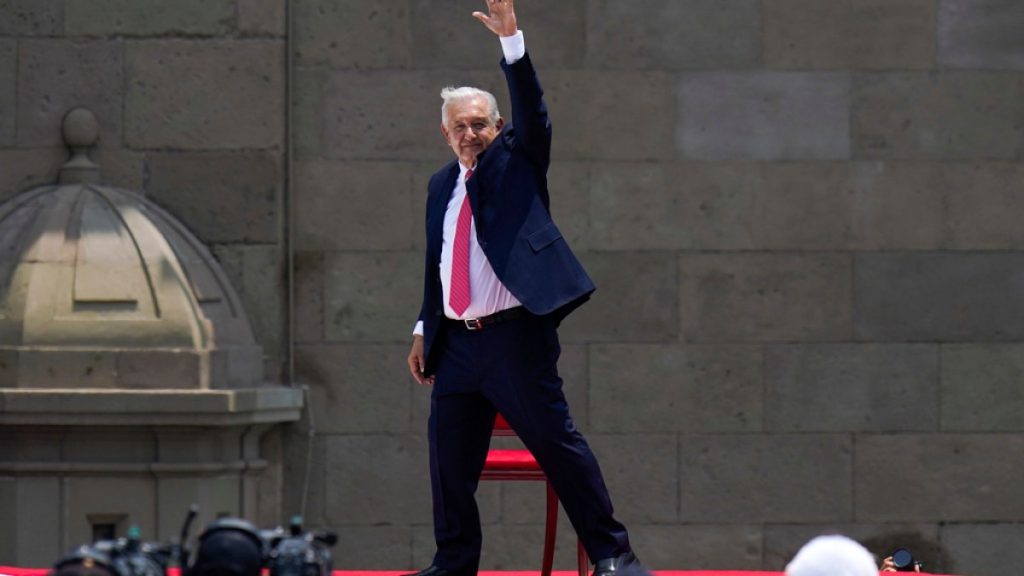As Mexican President Andres Manuel Lopez Obrador approaches the end of his single six-year term, a debate is brewing over the legacy he will leave behind. Despite an approval rating consistently above 60 percent, his time in office has been marked by controversy amidst widespread popularity. Critics argue that his government has eroded democratic oversight, failed to address rights abuses and insecurity, while supporters credit him with significant reductions in poverty through increased minimum wage, labour reforms, and welfare payments.
Lopez Obrador often refers to his presidency as a “fourth transformation”, highlighting economic changes such as poverty reduction and labour reforms as evidence of a historic break with the past. While his administration has been praised for lifting millions out of poverty, Mexico’s social spending remains low compared to other OECD countries. Critics also point out that tax collection remains insufficient, leaving a gap in funding for necessary social programmes.
On the topic of crime and security, Lopez Obrador has defended his approach as maintaining stability rather than implementing significant changes. While murder rates have slightly decreased during his term, Mexico still faces high levels of violence and insecurity, with a majority of citizens feeling unsafe. The President’s decision to expand the military’s role in public security has been controversial, with concerns about military control over civilian decisions.
AMLO’s relationship with the military has strained his ties with advocates for the country’s missing persons. His backing of the military’s version of events in cases such as the Ayotzinapa 43 has disappointed activists and relatives of victims, leading to protests and criticism. The President’s polarizing rhetoric and confrontational style have contributed to growing political polarization within the country, with tensions mounting as contentious reforms are pushed through.
In his final weeks in office, Lopez Obrador has faced opposition to constitutional changes that would make judges stand for election, with critics warning of politicization and erosion of democratic checks and balances. Similar concerns were raised last year regarding changes to the National Electoral Institute. While the President and his supporters argue that these reforms are necessary to combat corruption and privilege, critics see them as threats to institutional independence and democratic principles.
As Lopez Obrador prepares to leave office, both his supporters and detractors anticipate that his vision of politics will continue to influence the direction of the country. With his Morena Party holding supermajorities in Congress and President-elect Claudia Sheinbaum set to take over, the realignment of Mexican politics under AMLO’s leadership could be his most enduring legacy. However, concerns persist about the concentration of power in the hands of one party and the potential implications for democratic institutions in Mexico.















